Two Years of Advancing Competency-Based HRM in Serbia’s Civil Service
On 25th August 2025, the project “Integrated Human Resource Management in the Public Administration of the Republic of Serbia” marked the end of its two-year implementation period with a closing event and the final Steering Committee meeting. Since its launch in September 2023, the project has supported Serbia in strengthening civil service reform within the broader framework of public administration reform and European integration.
The event gathered representatives of the Delegation of the European Union, Ministry of Public Administration and Local Self-Government, Human Resource Management Service, and other key stakeholders, who reflected on the project’s results and discussed the next steps in ensuring that Serbia’s civil service is professional, competent, and ready to meet the challenges of modern public administration.
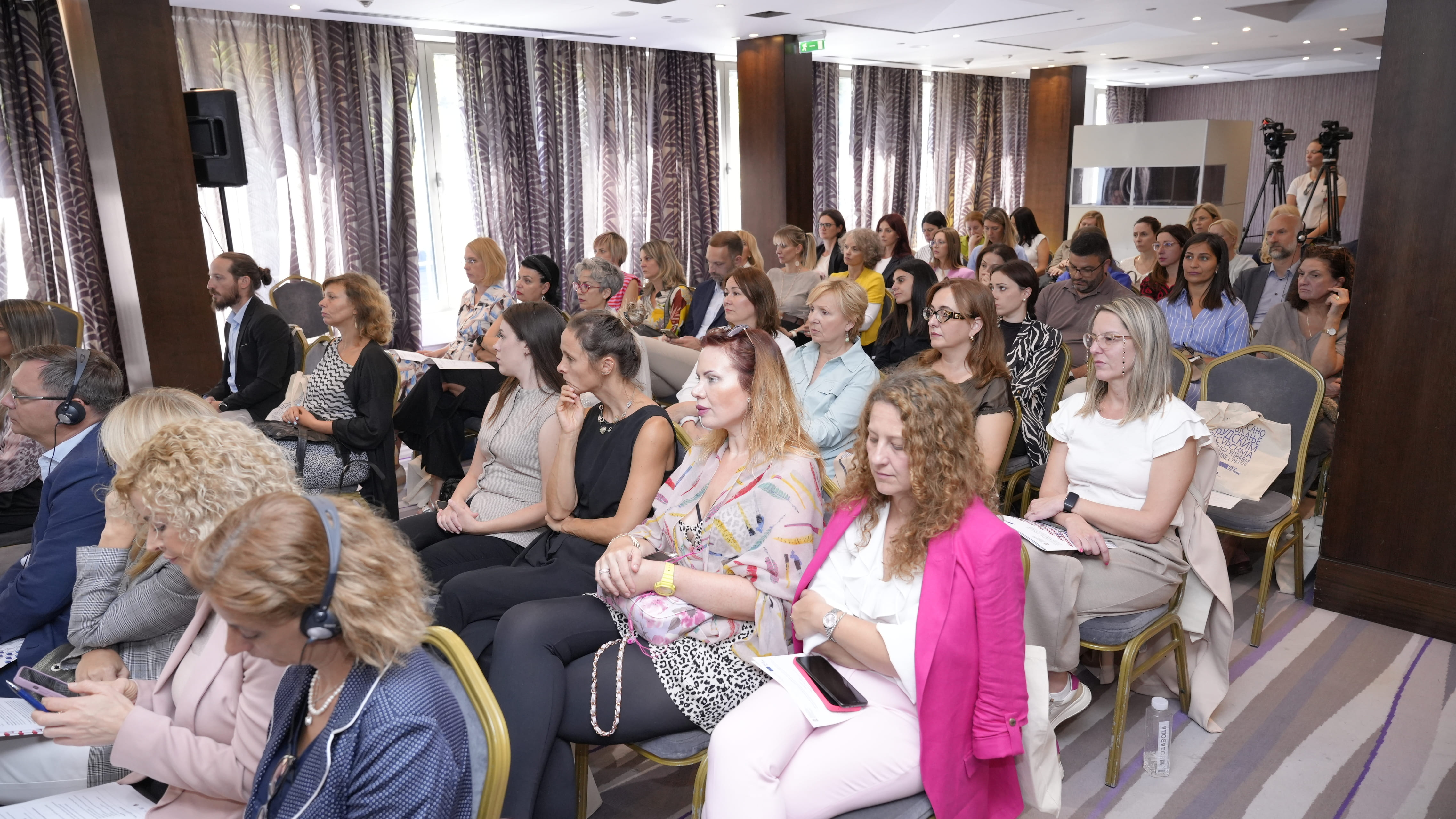
During the opening remarks, Ms. Ivana Ružičić, State Secretary in the Ministry of Public Administration and Local Self-Government, emphasised the importance of such projects for public administration reform and their significance for the broader European integration process.
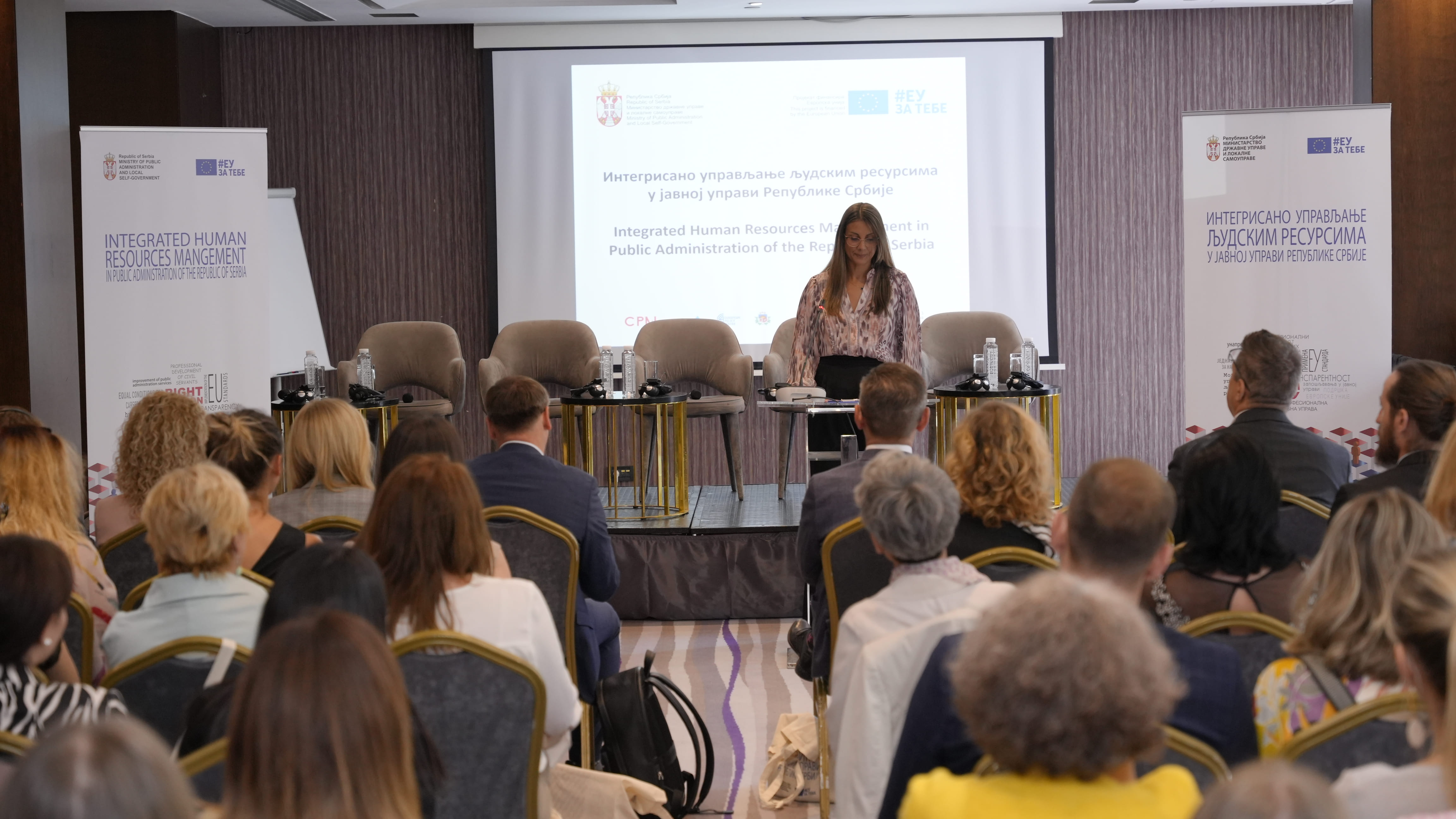
Mr. Richard Máša, Acting Head of Cooperation at the EU Delegation to Serbia, highlighted the EU’s support for Serbia’s HRM reform efforts and stressed the importance of continuous development of the HRM system.
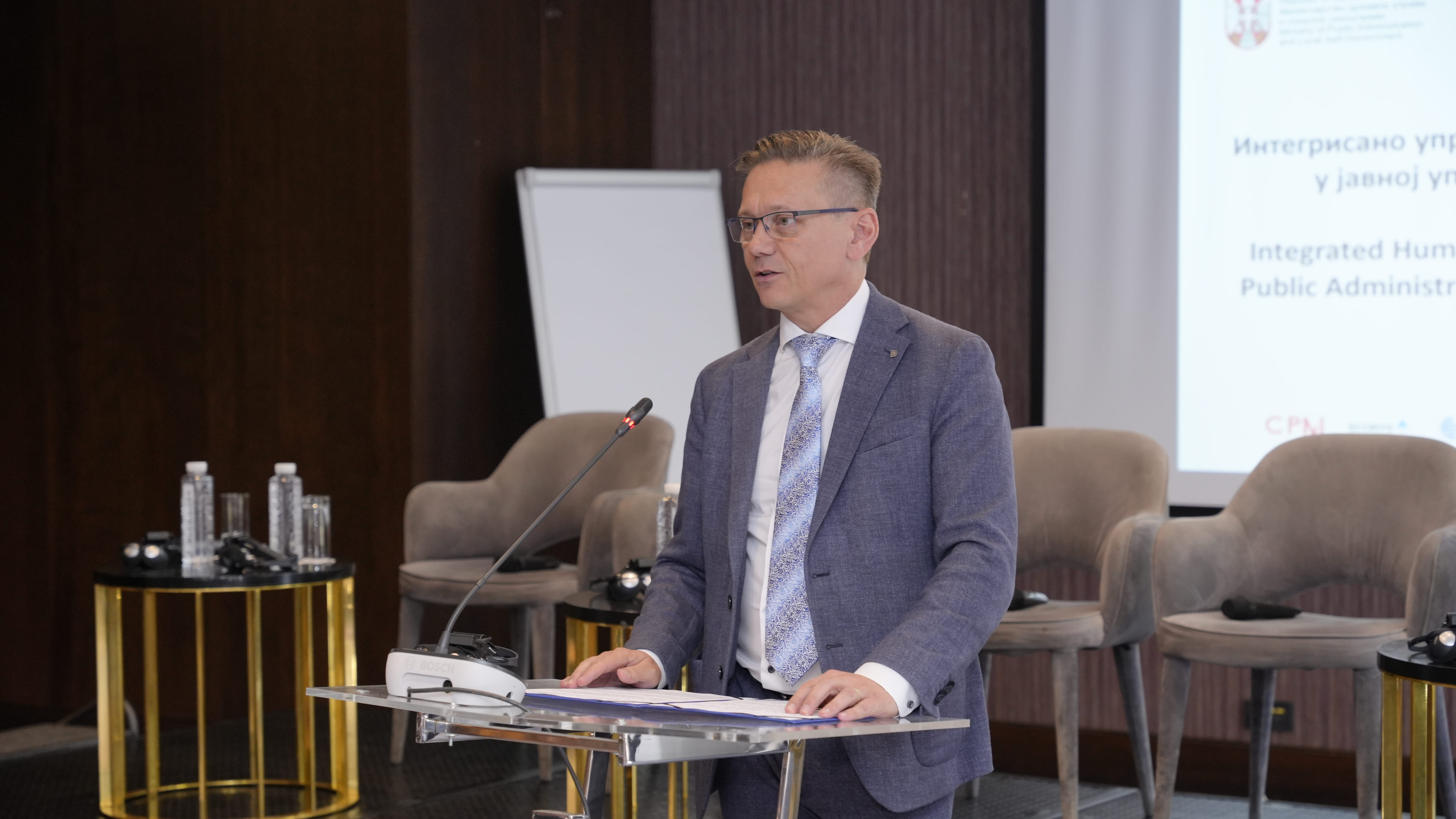
Mr. Edvardas Žukauskas, team leader and key expert on the project, presented the main results and achievements and conveyed recommendations to ensure the sustainability and future implementation of the project’s outcomes.
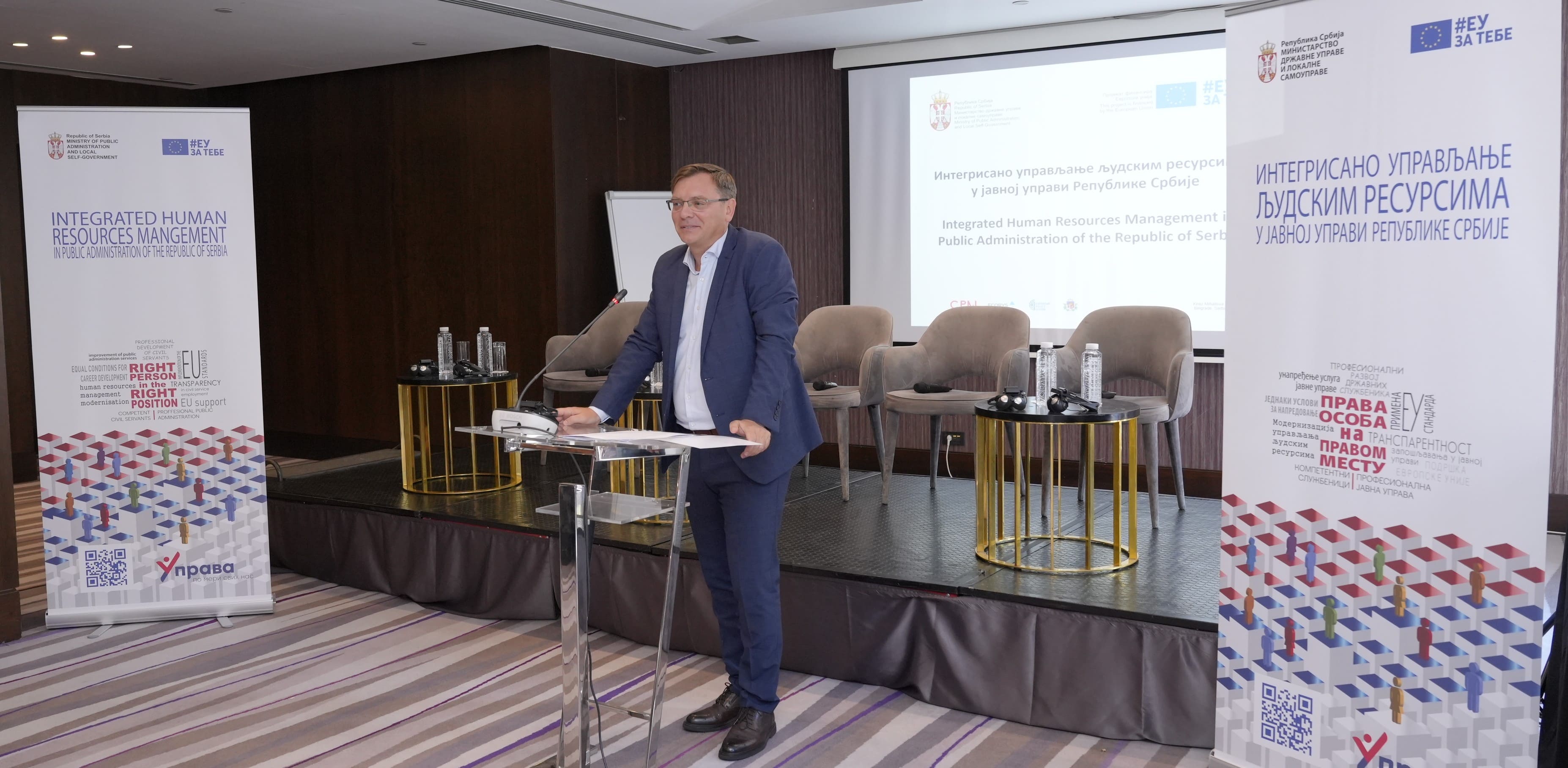
During the panel discussion, Ms. Ivana Savićević, assistant minister in the Sector for HRM in the Ministry of Public Administration and Local Self-Government, highlighted some of the projects’ main results were already integrated into the wider policy framework, within the process of formulating the Action Plan for 2026-2030 for the PAR Strategy of Serbia. These include the preparation of the annual monitoring and evaluation report on the state of play in the HRM area and the introduction of the enhanced competency framework into legislation. Mr. Dejan Kostić, Assistant Director in the Human Resource Management Service, reflected on the monitoring process and stressed the need to improve data reliability and the speed at which data is delivered, both of which will be significantly strengthened by the introduction of the Human Resource Management Information System.
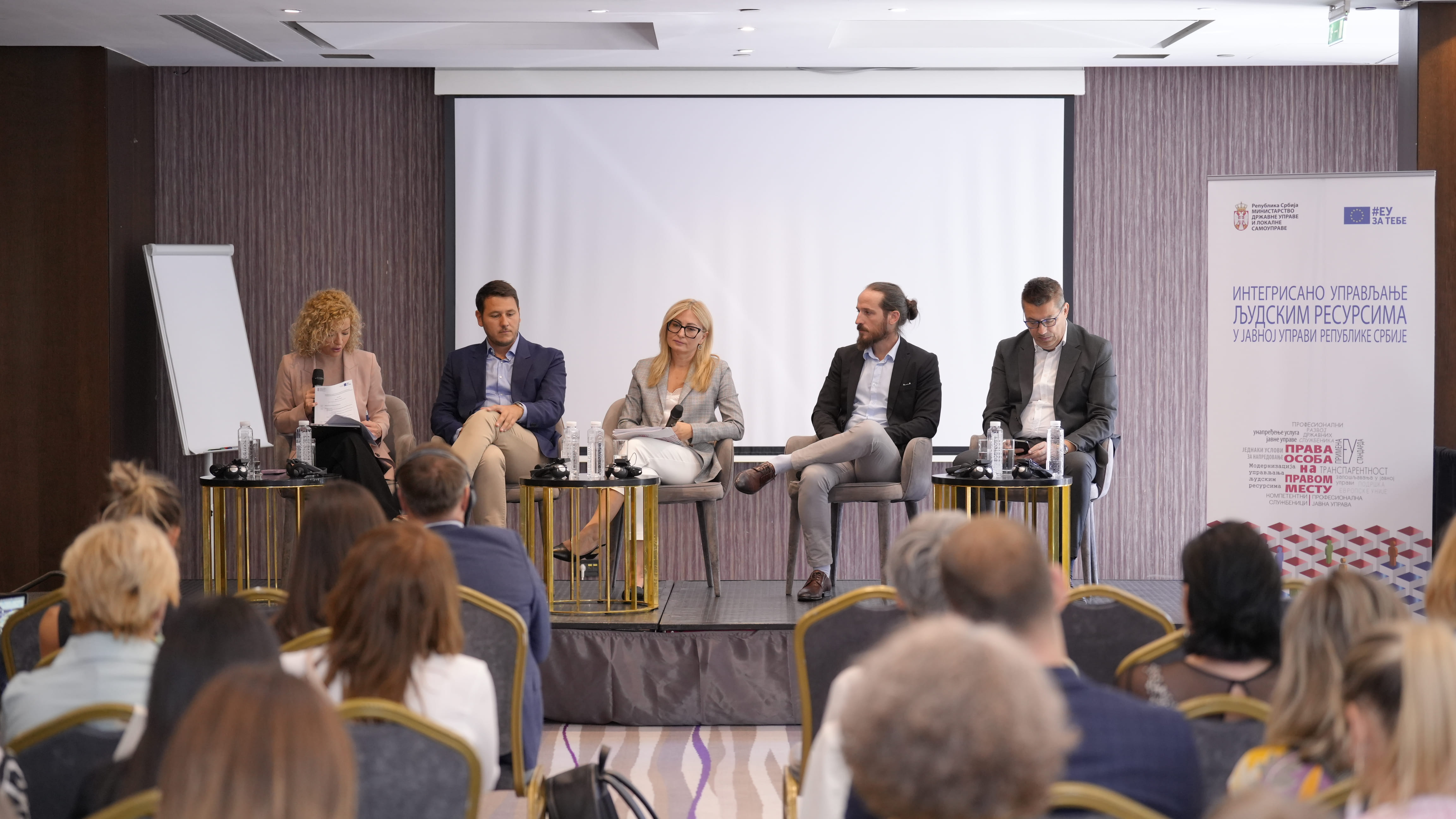
The project’s purpose was to establish a competency-based, integrated human resource management system that would modernise civil service practices and support evidence-informed policymaking. Over two years, the project developed a wide range of tools, methodologies, and models that now serve as the foundation for future HRM policies and practices in Serbia.
One of the most significant achievements was the development of Serbia’s first comprehensive monitoring and evaluation methodology for civil service HRM policy. The methodology introduces a structured set of indicators and practical tools that enable systematic monitoring of HRM policy implementation across state administration. Two full monitoring cycles have already been carried out, resulting in detailed reports that are informing ongoing policy design. In parallel, the project strengthened the analytical and reporting capacities of the Ministry of Public Administration and Local Self-Government and the Human Resource Management Service with numerous workshops and two study visits.
The project also delivered a proposal of an enhanced competency framework tailored to Serbia’s public administration needs. This framework defines new generic and functional competencies, introduces proficiency levels, and provides practical guidance for key HRM processes such as recruitment, performance appraisal, learning and development, and career progression. A Career management study and a Talent management model were also developed, introducing structured approaches to career planning and succession management. The pilot implementation of the talent management model tested the new approach to assessing leadership potential and planning career paths.
Through implementation, the project placed strong emphasis on capacity building and peer learning. Over 200 participants from different central public administration bodies took part in workshops and training sessions. These activities strengthened practical knowledge, introduced comparative EU experiences, and promoted innovation in HRM.
Looking ahead, the project’s recommendations emphasise the importance of further institutionalising the new monitoring and evaluation framework and introducing the enhanced competency framework across the administration. Continued attention to modernising HRM practices - such as improving performance appraisal and integrating learning and development with competency needs - will be crucial to sustaining reform momentum and achieving long-term impact.


